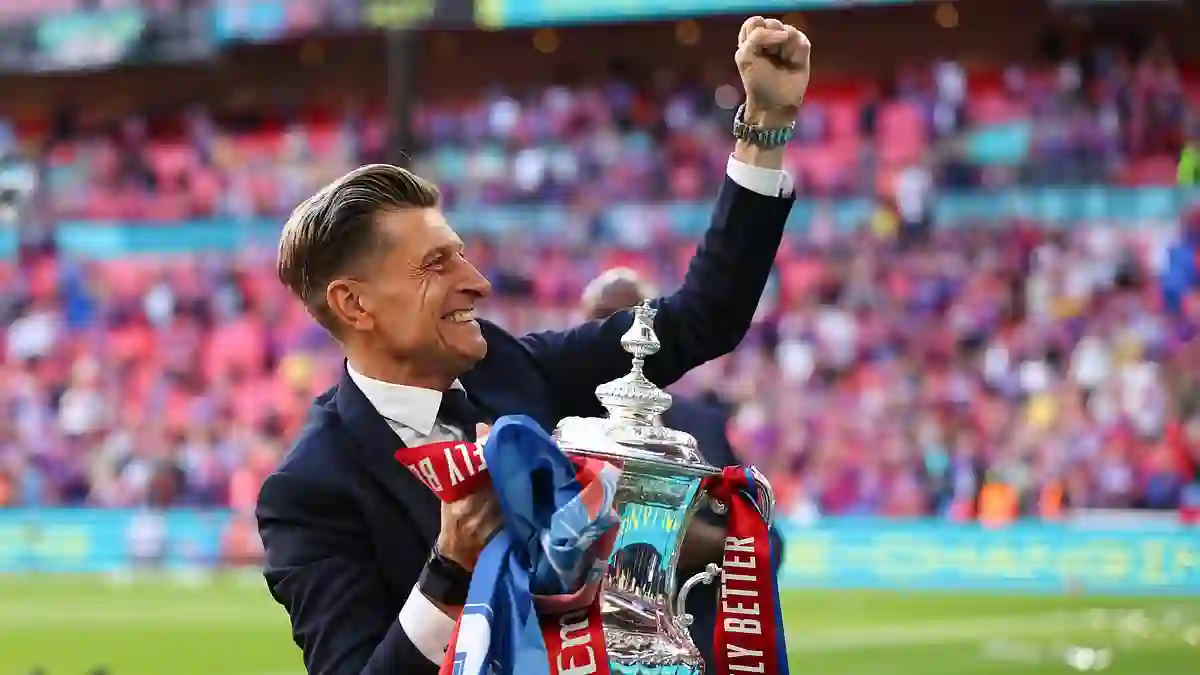Just a few months ago, Crystal Palace were riding high after lifting the FA Cup — a historic win that sparked jubilant celebrations and an open-top bus parade through London.
But now, the club finds itself in a very different kind of spotlight: not on the pitch, but in a courtroom in Switzerland.
This Friday, Palace’s legal team will face off against UEFA in Lausanne in a high-stakes appeal to reverse the club’s shock demotion from the Europa League to the third-tier Conference League.
The Eagles believe this isn’t just a legal technicality — it’s about fairness, transparency, and being treated equally.
What Crystal Palace Is Arguing
Palace’s lawyers plan to challenge UEFA using the organization’s own rulebook — specifically, a line that says “fair play” means ensuring equal opportunities for all competitors and respecting the value of every participant.
They’ll argue that Palace have not been given a fair shot.
That the club was dropped from the Europa League based on ownership rules in a way that contradicts UEFA’s own principles.
The Heart of the Controversy
At the center of the dispute is American businessman John Textor, whose Eagle Football Holdings owned 43% of Crystal Palace — more than any other shareholder.
Eagle also owns French club Lyon, who, like Palace, qualified for the Europa League.
UEFA doesn’t allow the same individual or group to have influence over more than one club in the same competition.
Since Lyon finished higher in their domestic league than Palace (7th in Ligue 1 vs. 12th in the Premier League), Lyon stayed in — and Palace were pushed out.
Palace Say There’s More to the Story
Palace don’t deny Textor’s shareholding — but they argue it didn’t amount to real control.
His voting rights were limited to just 25%, and key decisions were made by others.
Textor himself has admitted he had limited power and influence at the club.
The club will also highlight that they weren’t part of a multi-club structure when Textor joined.
Other clubs like Lyon and Brazil’s Botafogo were added later. Player movement between clubs was virtually non-existent.
What About the Other Clubs?
Palace’s argument stretches beyond just their own case.
They plan to question why other clubs in similar situations were allowed to compete. Manchester City and Girona, Manchester United and Nice, Brighton and Union Saint-Gilloise, and even the Red Bull duo Leipzig and Salzburg have all managed to stay in UEFA competitions despite overlapping ownership or sponsorship links.
In fact, Leipzig and Salzburg were drawn into the same Europa League group back in 2018 — something Palace sees as clear precedent.
The Role of the ECA and the “Blind Trust” Issue
A big part of Palace’s case involves what they say was a lack of access to critical information.
The club is not a member of the European Club Association (ECA), which represents over 700 clubs and gives member teams inside access to regulatory advice.
Palace claim the ECA advised clubs like Nottingham Forest (whose owner also controls Olympiacos) on how to set up “blind trusts” to sidestep the multi-club rule. Forest reportedly did just that — placing the club in a blind trust before the deadline.
Palace say they were never told that was an option.
Communication Failures and Unfair Deadlines
Even the way UEFA communicated the rules will come under scrutiny.
Palace claim that important emails were sent to a general address used for fan inquiries, and not seen by the right people internally.
While that might sound minor, it fits into their broader case — that the club was kept in the dark and unfairly penalized.
They also allege that other clubs were given a grace period to resolve ownership issues up to May 31, while Palace were judged on a March 1 deadline they weren’t clearly made aware of.
The Textor Sale and What It Means Now
Palace will stress that the problem has already been resolved: Textor has sold his stake to Woody Johnson, owner of the New York Jets and former US ambassador to the UK.
In their view, even if there was a technical conflict before, it no longer exists.
More importantly, they believe it was never truly a conflict in the first place.
Drawing Attention to Unequal Treatment
Palace’s lawyers will also raise inconsistencies in UEFA’s enforcement.
For example, they’ll point out how Lyon were allowed to compete in Europe last season even while under a provisional relegation and transfer ban.
They’ll mention comments from Barcelona president Joan Laporta, who said UEFA president Aleksander Ceferin had shown “a special sensitivity” toward Barça — suggesting favoritism.
Palace’s stance is clear: if fairness and sporting merit are UEFA’s principles, then the FA Cup winners should be allowed in the Europa League — not replaced by the seventh-placed Premier League team.
What Happens Next?
UEFA has remained tight-lipped on the matter, declining to comment.
Meanwhile, Palace are hoping for a ruling from the Court of Arbitration for Sport by August 11.
Until then, fans who celebrated one of the greatest moments in club history just a few months ago are holding onto hope that justice — and another reason to cheer — is just around the corner.
